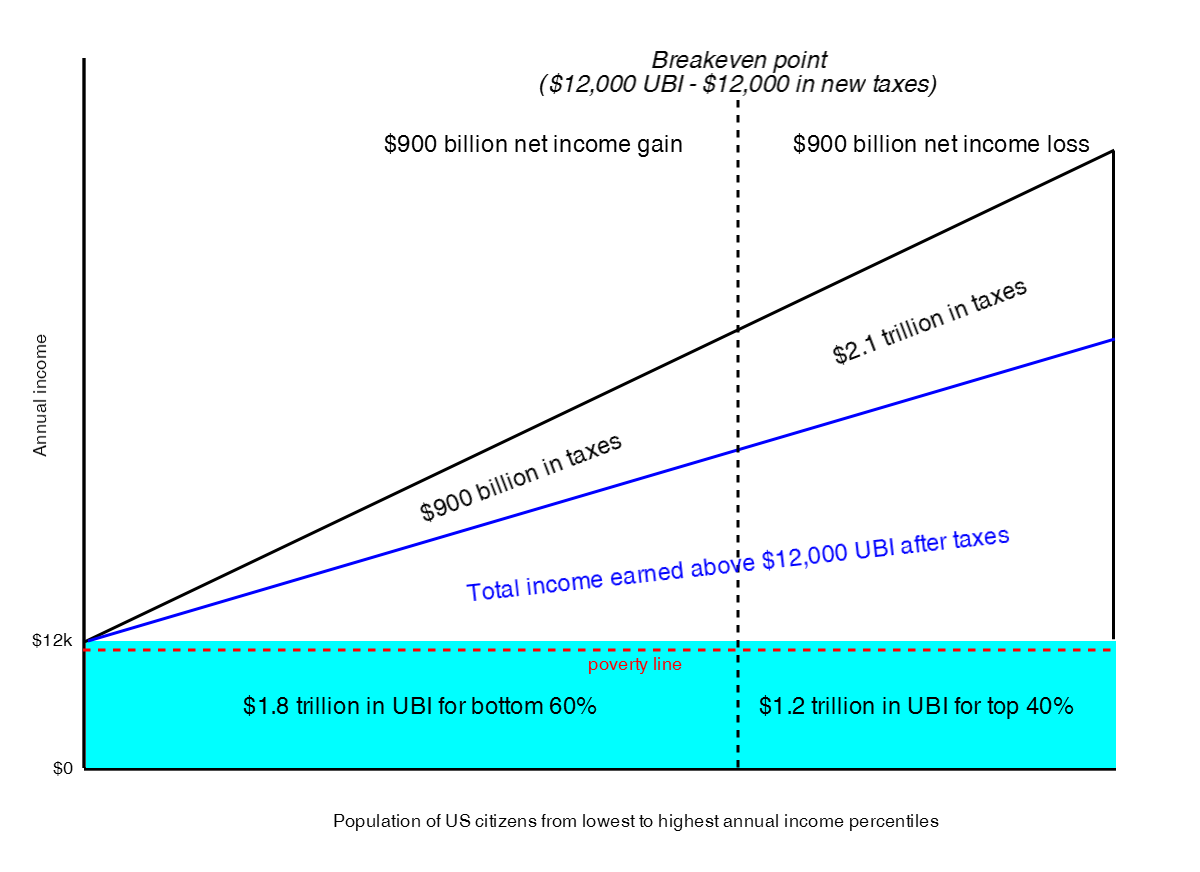Maxdeath
Diamond Member
- Jun 12, 2018
- 7,622
- 6,342
- 2,050
To bad you are trying to use people on the fringe of economics instead of people who really understand economics. But that is fine the only problem you really have is that too many understand economics. There are a few that you maybe able to convince (O.C., Beto and perhaps a few other crazies) we will quickly find the same thing in California that they saw in Finland and your dream of not having to work will die.So in other words we just print the money which in essence devalues the dollar worldwide.You are doing a great job of cut and paste. To bad you do not understand anything you are posting.So you are hoping that someone will not notice that you are trying to somehow produce money that is not there? We are talking a fundamental principle in everything here. Given a finite number of objects you can not slit those objects indefinitely. They do not magically respawn.
I was using gravity as an example of a simple principle called stupidity. If you think that tossing a rock into the air somehow equates to economics you may need more help in fundamentals.The safest continent on the planet will be the one that is the least inhabitable, Antarctica.
It sounds like you are confusing a national economy capable of electronically creating its own sovereign currency with a household economy?So you are hoping that someone will not notice that you are trying to somehow produce money that is not there? We are talking a fundamental principle in everything here. Given a finite number of objects you can not slit those objects indefinitely. They do not magically respawn.
If so, you have a lot in common with your rocks.
How to Fund a Universal Basic Income Without Increasing Taxes or Inflation
"The other option is 'qualitative easing,' a form of central bank quantitative easing in which the money flows directly into the real economy rather than simply into banks.
"In Europe, politicians are taking another look at this once-derided 'helicopter money.'
"A UBI is being proposed as monetary policy that would stimulate productivity without increasing taxes.
"As Nobel prize-winning economist Joseph Stiglitz, former senior vice president of the World Bank, explains:
"'. . . [W]hen the government spends more and invests in the economy, that money circulates, and recirculates again and again. So not only does it create jobs once: the investment creates jobs multiple times.'
"'The result of that is that the economy grows by a multiple of the initial spending, and public finances turn out to be stronger: as the economy grows, fiscal revenues increase, and demands for the government to pay unemployment benefits, or fund social programmes to help the poor and needy, go down.'
"As tax revenues go up as a result of growth, and as these expenditures decrease, the government’s fiscal position strengthens.'"
You have yet to post where you are getting the initial investment. The increase in taxes on increased spending will not compensate for the full universal income payments. Yes paying unemployment and other items will go down because it can be reduced by the amount of the income being given by ubi.
We can postulate a world where elephants fly, six equals four, people are self motivated and always good and debt does not matter. BUT in the world that we actually live in none of that is true.The initial investment could come from the Fed and/or Treasury just as it did for Wall Street's benefit a decade ago:You have yet to post where you are getting the initial investment. The increase in taxes on increased spending will not compensate for the full universal income payments. Yes paying unemployment and other items will go down because it can be reduced by the amount of the income being given by ubi.
Universal Basic Income Is Easier Than It Looks
"The Federal Reserve alone could do the job.
"It could buy 'Green' federal bonds with money created on its balance sheet, just as the Fed funded the purchase of $3.7 trillion in bonds in its 'quantitative easing' program to save the banks.
"The Treasury could also do it.
"The Treasury has the constitutional power to issue coins in any denomination, even trillion dollar coins."
So we might as well just go whole hog and start throwing our money in the toilet now and save time and energy.Can you wrap your mind around the idea that sovereign governments create money by spending?So in other words we just print the money which in essence devalues the dollar worldwide.

MMT Primer
"'The basic idea is that the government can’t run out of money,' Kelton said. 'It creates money just by spending.'
"When people talk about government profligacy bankrupting their grandchildren or triggering a cataclysmic debt crisis, Kelton argues, they’re conflating the experience of a typical family, which has to get money from somewhere outside the household to meet expenses, with that of a sovereign government, which creates money as part of its basic operation."
Stephanie Kelton Has The Biggest Idea In Washington | HuffPost






